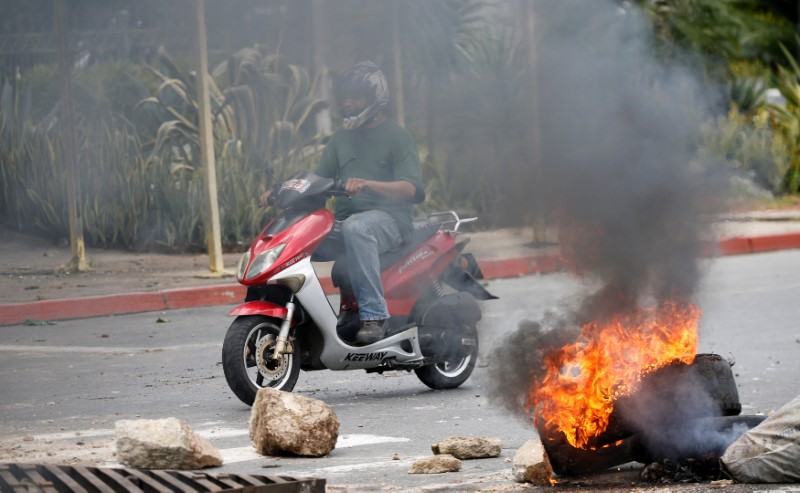
By Sam Edwards
BARCELONA (Reuters) – Tens of thousands of people took to the streets of Catalonia on Tuesday to protest against Sunday’s violent crackdown by Spanish police on an outlawed independence referendum for the region.
Metro stations shut down in Barcelona, pickets blocked dozens of roads and state workers walked out in response to a call for a general strike by pro-independence groups and trade unions. Many small businesses also shut down for the day.
Catalonia, Spain’s richest region, has its own language and culture and a political movement for secession that has strengthened in recent years.
Pro-independence parties who control the regional government staged Sunday’s referendum in defiance of Spanish courts that had ruled it illegal. Some 900 people were injured on polling day when police fired rubber bullets and charged at crowds with truncheons to disrupt the vote.
Those who participated voted overwhelmingly for independence, a result that was expected since residents who favor remaining part of Spain mainly boycotted the vote.
Opinion polls conducted before the vote suggested only a minority of around 40 percent of residents in the region back independence although a majority want a referendum to be held.
Protesters said the violent police crackdown against the ballot had energized the secessionist camp.
“What happened on Oct. 1 has fired up independence feeling that will never die,” said 18-year-old student Monica Ventinc, who attended a protest on Tuesday.
Catalan leader Carles Puigdemont has said the referendum is valid and its result must be implemented. Spain’s Constitutional Court prohibited the ballot, siding with Madrid which argued that it contravened the country’s 1978 constitution which bars breaking up the country.
The referendum has plunged Spain into its worst constitutional crisis in decades, and is a political test for Prime Minister Mariano Rajoy, a conservative who has taken a hard line stance on the issue. Outside of Catalonia, Spaniards mostly hold strong views against its independence drive.
Several demonstrations unfolded throughout Catalonia on Tuesday. To the north of Barcelona, a line of tractors moved down a road blocked to traffic, accompanied by protesters chanting “Independence!” and “The streets will always be ours!”
Crowds gathered outside the local headquarters of Spain’s ruling People’s Party (PP) and the Spanish national police headquarters in Barcelona, whistling and waving the red-and-yellow regional flag.
“In no way can we accept that they come here with this kind of repression,” taxi driver Alejandro Torralbo, standing outside the PP headquarters, said of Sunday’s police action.
Spain’s Deputy Prime Minister Soraya Saenz de Santamaria said Puigdemont and his regional government had lost respect for the democratic process and were showing a flagrant disregard for the law.
“I’ve seen how President Puigdemont has flooded the streets with his followers to stop people obeying the law and to make them disrespect justice,” she said. “We are here to defend the rights and liberties of all Spaniards that have been trampled upon by the regional government.”
(Additional reporting by Angus Berwick in Vic, Robert Hetz and Sonya Dowsett in Madrid; Writing by Paul Day and Adrian Croft; Editing by Julien Toyer, Janet Lawrence and Peter Graff)











